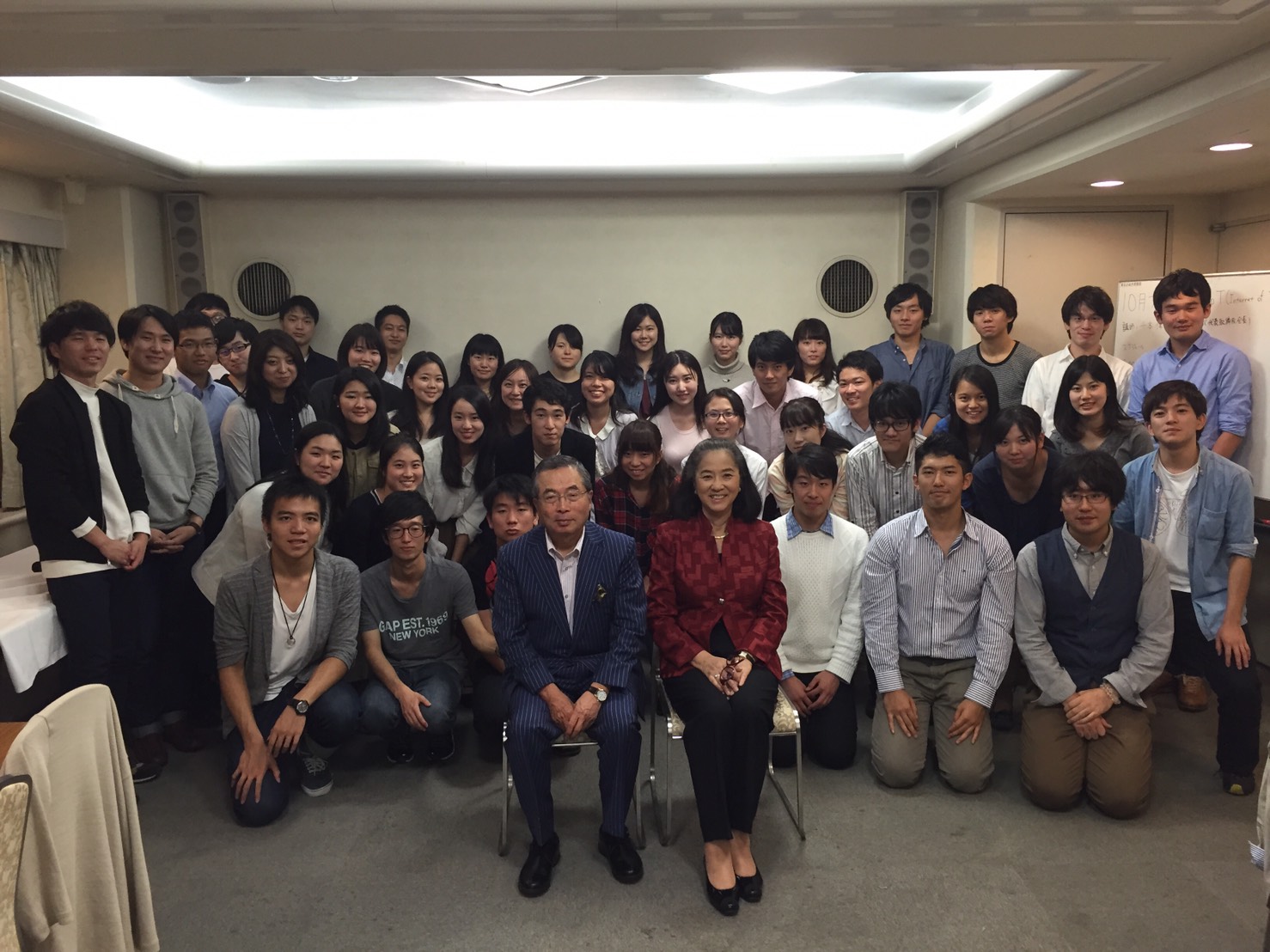- HOME
- Activities
- Forum List
- Forum Details
Oct.19.2016 KIP Forum “The management thought and philosophy in the era of the IoT (Internet of Things)”
Mr. Sachio Semmoto, Managing Director of Renova, Inc.

Mr. Sachio Semmoto: After graduating from Kyoto University, Mr. Semmoto began his career with Nippon Telegraph & Telphone (NTT). He earned his doctorate in electrical engineering from Universty of Florida as a Fulbright scholar. After resining from NTT, he founded DDI Corporation (KDDI), mobile business( au), PHS business (Y!Mobile, which is now under Softbank Corp.), and in 1999 eAccess Ltd. In 2014, he assumed the post of outside director of Renova, Inc. and from the next August, the management director.
For our October forum, we invited Mr. Semmoto who has founded KDDI and Y!mobile and now a managing director of Renova, Inc. The title of his talk was “The management thought and philosophy in the era of the IoT (Internet of Things)”. He talked about how to become an entrepreneur from his own experience such as the values he held to face the society and what was necessary to start a company.
In the first part of the forum, Mr. Semmonto talked mostly about how he made decisions throughout his career. Specifically, he focused on the reasons why he had decided to enter the stable big company “Nippon Telegraph and Telephone Public Corporation”, after graduating from university, and to found a company throwing away the position he had (at “Nippon Telegraph and Telephone Public Corporation”) as a manager of 300 employees working under him when he was forty years old. The story he told us that affected his decision on launching his own company was especially interesting. He studied at Florida University as a Fulbright scholar after few years into his career at Nippon Telegraph and Telephone Public Corporation. He told us about his roommate at that time eagerly. His roommate was normally a gentle person, however, he got angry when he heard about the company Mr. Semmoto belonged to. The reason was that he believed monopolistic companies would interfere economic development, while fair competition would improve the economy. When Nippon Telegraph and Telephone Public Corporation was privatized years after Mr. Semmoto came back to Japan, he recalled that conversation he had with his roommate which encouraged him to start his own telecommunication company, KDDI so that he would stimulate competition in the industry. According to him, the keys to success were venture sprit, effective strategies which suppressed costs and risks, and a partner who had vital elements he did not have. After succeeding with KDDI, Mr. Semmoto kept challenging businesses such as founding au, Y!mobile and so on. Even now, he challenges business as a managing director of Renova. His powerful character, strong passion and youthfulness struck us and we noticed how important to challenge new things is. After succeeding with KDDI, Mr. Semmoto kept pursuing his passion by consecutively founding several other telecommunication companies such as au and Y!mobile. As now a managing director of Renova, he inspired us with his fascinating characteristics, strong passion and vitality still existing in his core nature.
Second, we discussed “the necessity of college education for entrepreneurs” with reference to the lecture of Mr. Semmoto. After discussing actively, half of the groups concluded that college education was vain, while others concluded it was effective through active discussion. The main reason for the former groups was although college education could be beneficial for entrepreneurs, it was not necessarily required since other means such as going to cram schools for future entrepreneurs or for qualifications were much more effective. Meanwhile, the main reason of the other groups was the acquisition of wide views, a great network and social credibility, which were all necessary for entrepreneurs, would only come with a college student life. In addition to that, there was another opinion that science course would be helpful because of high degree of professionalism. The discussion let us to think about how to proceed our character formations even though it had started from how important college education was.The discussion became a precious opportunity for us to consider how to choose our ways in our lives. Lastly, we are truly grateful for having this opportunity to receive a lecture from Mr. Semmoto. We really appreciate his kindness.
(Tetsuya Fujiwara)

